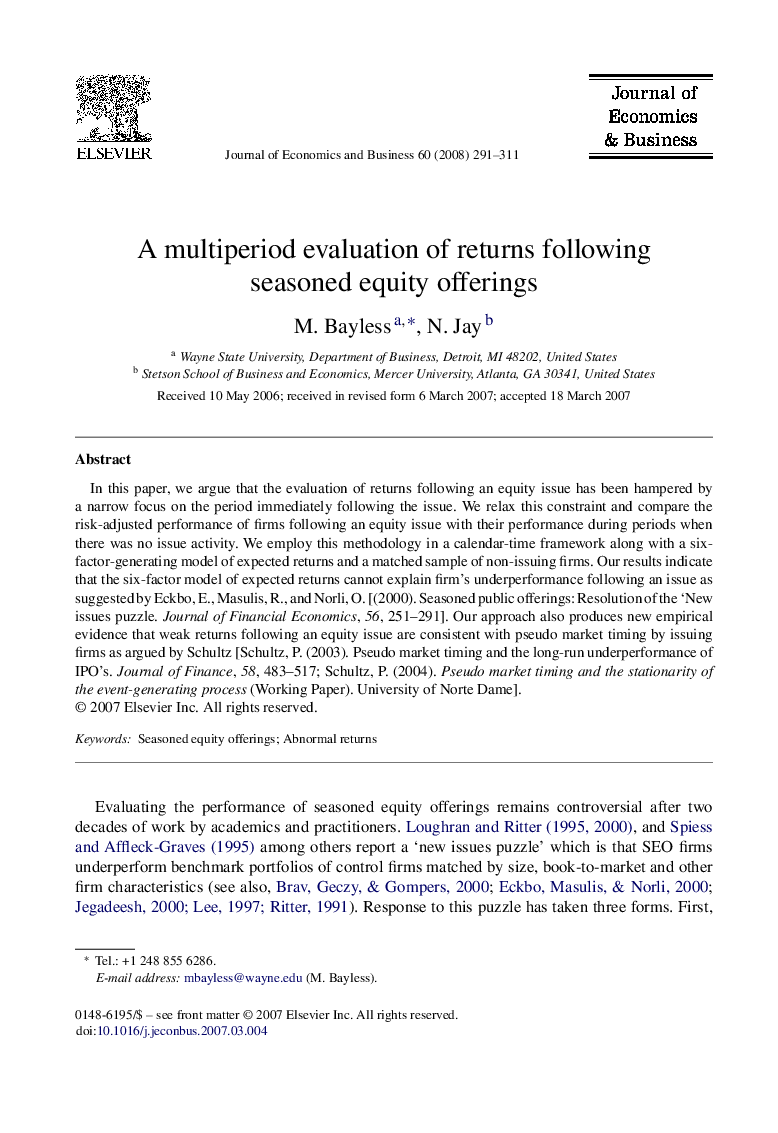| Article ID | Journal | Published Year | Pages | File Type |
|---|---|---|---|---|
| 958067 | Journal of Economics and Business | 2008 | 21 Pages |
Abstract
In this paper, we argue that the evaluation of returns following an equity issue has been hampered by a narrow focus on the period immediately following the issue. We relax this constraint and compare the risk-adjusted performance of firms following an equity issue with their performance during periods when there was no issue activity. We employ this methodology in a calendar-time framework along with a six-factor-generating model of expected returns and a matched sample of non-issuing firms. Our results indicate that the six-factor model of expected returns cannot explain firm's underperformance following an issue as suggested by Eckbo, E., Masulis, R., and Norli, O. [(2000). Seasoned public offerings: Resolution of the 'New issues puzzle. Journal of Financial Economics, 56, 251-291]. Our approach also produces new empirical evidence that weak returns following an equity issue are consistent with pseudo market timing by issuing firms as argued by Schultz [Schultz, P. (2003). Pseudo market timing and the long-run underperformance of IPO's. Journal of Finance, 58, 483-517; Schultz, P. (2004). Pseudo market timing and the stationarity of the event-generating process (Working Paper). University of Norte Dame].
Related Topics
Social Sciences and Humanities
Business, Management and Accounting
Strategy and Management
Authors
M. Bayless, N. Jay,
